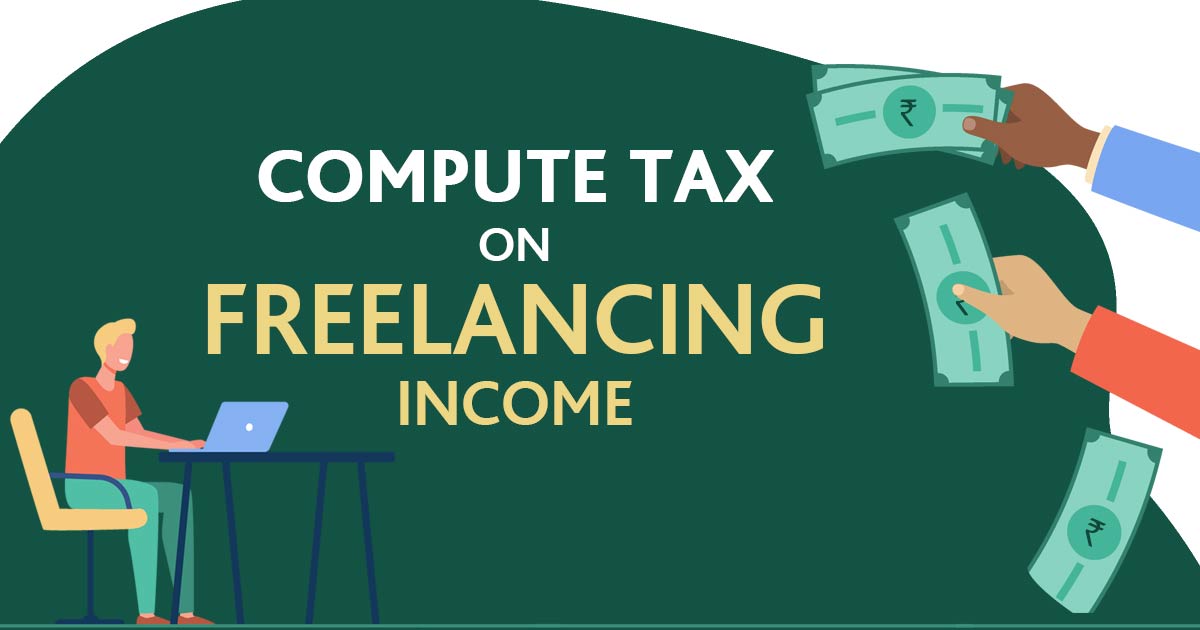
With the better feasibility despite the former jobholders seems to do the freelancing on the sideways in all the industries along with the sales, education, delivery, IT, and data processing. The supplemental income earned via independent work needs to be provided to the tax below the income tax act.
Income Tax Return On Freelancing
The income via freelancing needs to be provided beneath the “Profits and Gains from Business or Profession”. But the tax rate upon which the income of the freelancer is assessed is just the same concerning the subject salaried person; the “standard deduction” permitted via salary income shall not be availed on the income that happens through freelancing.
Still, in one year the actual expense concerning the work could be claimed as a deduction while calculating the income entitled for tax. For example, the rent furnished towards the property utilized to do the work, depreciation upon the subject capital assets, expenses incurred towards office supplies, monthly telephone bills, internet bills, conveyance expenses, etc., can be claimed as a deduction.
When these expenses are performed towards professional and personal goals or both then only an eligible amount of reason towards the professional utilization can be availed.
The person who revealed the income via business or profession is needed to file the income return inside ITR 3. As per that, a similar form will be subjected to apply towards the freelancers who used to earn income via independent work excluding when the choice of presumptive taxation is collected.
Taxability on Possible Grounds
In the normal way, all the individuals who are involved in the business or the said profession engaging with the consultancy or freelancing are required to maintain the regular books of accounts and draw them under the audit part so as to find out the correct taxable income.
But to provide relief towards the small assessee through the tough chores of maintaining the books the entitled professional is permitted taxation upon the grounds of the presumptive in which the income subjected to tax is deemed to be 50% of the total receipts. If the policy is chosen then there is no more deduction performed on any expenses which come under the deduction part.
Scheme, freelancers can go for it if their total receipts are less than Rs 50 lakh. The adoption of the presumptive taxation scheme follows the payments of the complete amount of advance tax on or before the 15th of March of the fiscal year, upon which the interest beneath section 234C is forced. ITR-4 is the scheme beneath which the form for filing the Income-tax return is performed.
Concessional Income Tax Regime
From the fiscal year 2020-21, a person can choose another concessional tax rate (CTR) regime in which the income can be provided to the tax at a lower slab rate stating specific fixed deductions, exemptions, carried forward losses, and unabsorbed depreciation is exempt. It is a choice for the assessee to practice the alternative in each assessment year.
However the assessee who possesses the business or the professional income is not able to opt among the 2 tax regimes for every fiscal year. He is held with only 1 chance to perform that. When the same choice of switching back is performed then the person shall not opt for the latest tax regime in any of the coming fiscal years. As per the outcome, the freelancer poses only 1 choice to switch over, after that he shall need to carry on furnishing the taxes beneath the opted regime till the work of freelancing gets stopped.








